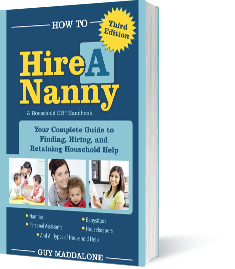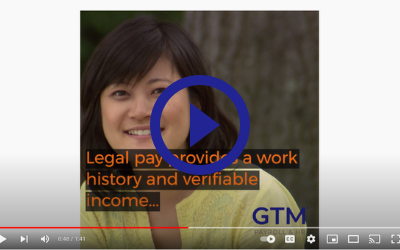How to Talk to Your Nanny About Legal Pay
The awesome nanny you plan to hire wants to be paid off the books. You know the risks but do you take a chance and go along with your nanny? Nannies, however, often don’t see the bigger picture when it comes to being paid legally and what benefits (both immediate and long-term) they may be missing. Here’s what to say to get them on board with legal pay.
Nannies Benefit from Legal Pay
Off-the-books pay means more money to take home at the end of the week. Who does not want that?
The benefits of legal pay, however, far outweigh the small amount taken out of a paycheck each week.
By being paid legally, a nanny has a legal employment history and verifiable income. This comes into play when they are applying for car loans, credit cards, or a mortgage. Or to show that they can pay rent. Without proof of a job and income, none of this is possible.
Nannies Gain Protections with Legal Pay
Some of the protections nannies may gain with legal pay include:
- Workers’ compensation insurance
- Unemployment benefits
- Disability insurance
- Paid sick and family leave
- Social Security benefits
- Medicare contributions
Nannies Get Tax Breaks
Nannies – and other household employees – can also tax breaks and credits like the Earned Income Tax Credit (EITC).
The EITC helps low- to moderate-income workers and families get a tax break. If they qualify, they can use the credit to reduce the taxes they owe – and maybe increase their refund.
Health and Other Benefits
When a nanny is on the books, you can provide health benefits, like a QSEHRA (Qualified Small Employer Health Reimbursement Arrangement), which can be used to pay health insurance premiums – including plans purchased through the healthcare marketplace – and/or out-of-pocket medical, vision and dental expenses.
A QSEHRA can also cover family members and be paired with a spouse’s health insurance plan.
With a QSEHRA, employer contributions are made pre-tax, lowering your employee’s taxable income, and saving everyone some money. Reimbursements are also tax-free.
In addition, you can also make tax-free contributions to their student loans and/or other educational expenses.
You Want to Treat Your Nanny as a Professional
Your nanny will be someone trusted to care for and help raise your children. If you work out of the house, your nanny may be spending more time in your home during the week than you will! You want a professional caregiver and wish to treat them that way with all the benefits of legal pay. Don’t make committing tax fraud one of the first things you do with your nanny.
You Aren’t Willing to Take the Risk
Getting caught not paying your nanny taxes can be costly with fines, penalties, interest, and payment of back taxes easily adding up to tens of thousands of dollars. That’s not a risk you’re willing to take and will fulfill your legal obligation to withhold payroll taxes and report your employee’s wages.
Download How to Talk to Your Nanny About Legal Pay
Get our complimentary guide and learn everything you need to know about talking to your nanny about being paid legally.
Watch Our Video: Benefits of Legal Pay for Nannies
Download Free Chapters
How to Hire a Nanny

Questions? Get Help with Household Payroll
A household payroll expert can answer questions you have about your own situation.
Call or chat with us during business hours, or schedule a free consultation at your convenience.

Call Toll Free: 800-929-9213
Hours: Mon-Fri 8:30 am - 8pm, ET




 Get your free:
Get your free: